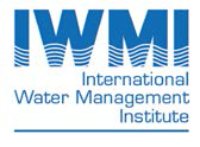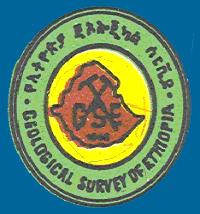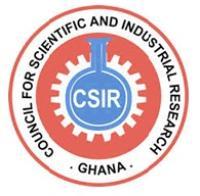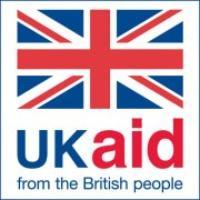Partners
Newcastle University
http://www.ncl.ac.uk/
Newcastle University will involve staff in two academic departments: School of Agriculture, Food & Rural Development (AFRD) and School of Civil Engineering & Geosciences (CEGS). Newcastle staff in the project have expertise in modelling and field studies of integrated ground/surface water systems, assessment of climate pressures on water resources, agricultural water management, gender studies, rural livelihoods, poverty reduction, and policy and institutional analysis. Track record includes the management of the DFID-funded project “Sustainable Management of the West Bank and Gaza Aquifers”, which provided multi-disciplinary research and capacity building for the Palestinian water sector. Recent projects in Africa include: catchment management and poverty alleviation in South Africa and Tanzania; modelling rainwater harvesting for maize cropping in semi-arid Tanzania; improved dryland cropping systems incorporating rainwater harvesting and/or conservation in Tanzania; combining scientific and participatory approaches to land resource assessment and water management in Uganda and Tanzania; water harvesting for agriculture in sub-Saharan Africa; a transboundary water resources model for the Nile basin; sustainability assessment of bioenergy projects; and food governance and food security in Southern Africa. Members of the team have also worked in Ghana, Zimbabwe, Uganda, Angola and Zambia.
International Water Management Institute
http://africa.iwmi.cgiar.org/#
IWMI has conducted over a decade of research on groundwater. Much of the initial work took place in Asia, in particular in India and China where groundwater tables were dropping. Later work in sub-Saharan Africa (SSA) is benefiting from this longer-term research. In sub-Saharan Africa the groundwater conditions of 15 African countries have been documented in a thorough and systematic fashion. Different approaches to mapping aquifer suitability have being trialed in Ghana and the outputs verified against field observations. Novel approaches have been applied to determine the groundwater baseflow contribution to surface water courses for the first time at the pan-African scale. The work serves to provide broad-brush indication of groundwater sustainability from the viewpoint of spatio-temporal changes in groundwater availability and groundwater recharge; which are of the upmost concern when proposing increased groundwater development. IWMI participates in AMGRAF through its East Africa, West Africa and Southern Africa offices.
Geological Survey of Ethiopia (GSE)
http://www.gse.gov.et/
The Geological Survey of Ethiopia (GSE) was originally established in 1968 as a department within the Ministry of Mines and Energy. In 1984 it became an autonomous government agency named the Ethiopian Institute of Geological Survey and was renamed the Geological Survey of Ethiopia in 2000. Its mission is to carry out geoscientific surveys of Ethiopia so as to produce high quality geodata in a format suitable for easy utilization by end –users. GSE comprises four main scientific departments: hydrogeology, engineering geology & geothermal department; geophysics department; regional geology & geochemistry department; economic minerals exploration & evaluation department. The involvement in AMGRAF is through the hydrogeology division which aims to collect and compile pertinent hydrogeological data of the country; to assess groundwater potential of the country; to carry out hydrochemical study and identify areas of pollution; to produce hydrogeological maps at 1:250,000 scale.
Water Research Institute (WRI), Ghana
http://csir-water.com/
Water Research Institute (WRI) is one of the 13 research institutes of the Council for Scientific and Industrial Research (CSIR), Ghana, with a mandate to research into water and related resources. The Institute generates and provides scientific information, strategies and services towards the rational development, utilization and management of water resources in support of socio-economic advancement of Ghana. WRI has extensive experience and expertise in groundwater and surface water hydrology and works closely with Ghana’s Ministry of Food and Agriculture, Water Resources Commission, and Ministry of Water Resources, Works and Housing among others, in achieving relevance and uptake of its research products. The objective of the Groundwater Division is to generate, process, and disseminate information on the availability of groundwater, quantity of water to be abstracted for various uses as well as the reliability and sustainability of its recharge. The aim of the Surface Water Division is to provide decision support in the water sector by contributing to long term research on water resources assessment; causes and consequences of climate change; processes, causes and mitigation of sedimentation and soil erosion; irrigated agriculture; and causes and effects of hydro-meteorological hazards.
Council for Scientific and Industrial Research (CSIR), South Africa
http://www.csir.co.za/
CSIR, constituted by an Act of Parliament in 1945, is one of the leading scientific and technology research, development and implementation organizations in Africa. The research domain Natural Resources and the Environment conducts world-class, directed, inter-disciplinary research and technological innovation in resource-based sustainable development to contribute to the social, economic and environmental improvement of Africa. The Water Resources competency area has a long-standing reputation in basic and applied research in water and land degradation issues, with the aim of securing, sharing and sustaining the regional resource base. CSIR has key alliances and partnerships with Government Departments, large private sector industries, nearly all South African and numerous international tertiary and research institutions, the Stockholm International Water Institute, the African Union through the New Partnership for Africa’s Development (NEPAD) and the Southern African Development Community (SADC) for water resource management. It is a founder member of the Global Research Alliance (GRA) and Regional Research Alliance (RRA). CSIR (Hydrosciences and Sustainability Science and Resource Economics groups) contributes to AMGRAF2 mainly through expertise in irrigation science, groundwater and hydrological modelling, sustainability sciences and trans-disciplinary research.





